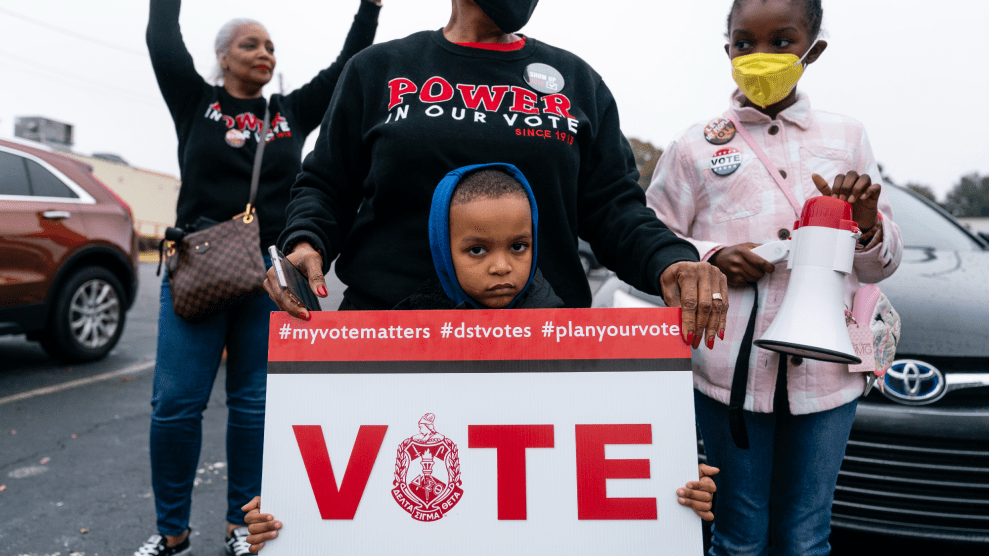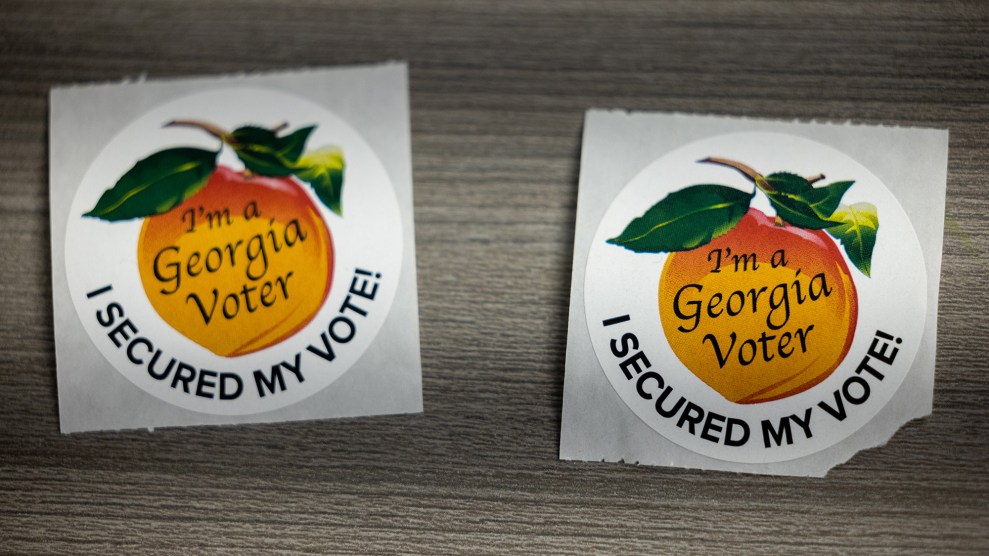
A young boy holds a sign during a rally advocating for early voting and voting rights on Sunday, October 30, 2022 in Decatur, GA.Elijah Nouvelage/Getty
A federal judge on Thursday ruled that voting maps created by Georgia Republicans violated the Voting Rights Act by racially discriminating against Black voters. In his 516-page ruling, US District Court Judge Steve Jones ordered lawmakers to redraw the state’s congressional and legislative districts, as well as create an additional Black-majority congressional district by December 8. The new maps could have major implications for the 2024 elections.
Since September, voting rights advocates have been engrossed in a legal battle with legislators, arguing that the 2021 passage of new voting maps diluted the power of Black voters. As my colleague Ari Berman wrote when the new maps were drawn:
The congressional lines adopted by Georgia Republicans entrench white power by diluting the votes of fast-growing communities of color—a defining feature of GOP gerrymandering across the South this year. Georgia gained 1 million new residents over the last decade—all from communities of color—and is now a majority-minority state, but the congressional map increases representation for white Republicans and decreases representation for voters of color in spite of these demographic changes.
Now, along with redrawing current maps, Jones ordered lawmakers to create a new Black-majority congressional district, two more state Senate districts, and five additional state House districts, CNN reports. Republican Gov. Brian Kemp responded to Thursday’s order by scheduling a special session for November 29. But he did not rule out the possibility of appealing the court’s decision, according to the Associated Press. The Supreme Court’s ruling in the Georgia case is the most recent in a wave of decisions upholding the Voting Rights Act, including in Alabama and Florida, where judges ordered states to redraw maps found to be racially gerrymandered.
















